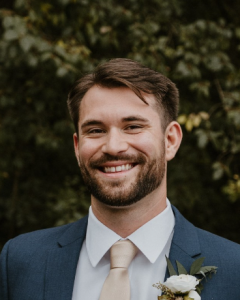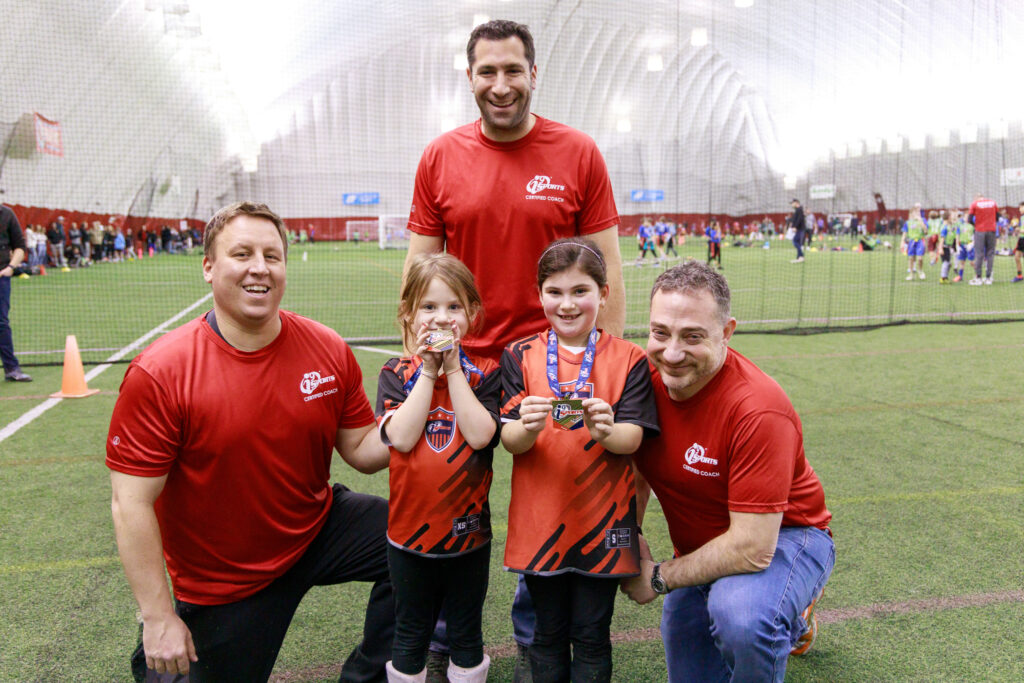4 Reasons Toxic Coaching is Out and Positive Coaching is In
Many parents believe that a good coach should be abrasive in order to “toughen kids up.” They may picture someone shouting and pacing the sidelines, talking down to players, punishing errors with humiliation or laps, or arguing with officials every play. These actions contribute to an overall toxic playing environment and coaching style. This style of coaching isn’t necessary or beneficial. Kids don’t need a coach who yells at them in order to improve, win, or become “tough,” mentally or physically. Research shows the opposite is actually true!
Not only do kids not need an abrasive coach, they don’t want one. Kids thrive when competition is paired with fun, encouragement, and respect. Great coaching isn’t about how loud you are, it’s about supporting athletes, building their confidence, and developing the person within the athlete.
The takeaway? Toxic coaching is out, and positive coaching is in. Here are four reasons kids thrive under supportive coaches:
1. Kids Play Harder for Coaches Who Support Them
You were a child once, so for a moment, put yourself back in your childhood shoes. Think about your own experiences, not only in sports, but in school, or currently in your career. Do you thrive more when your boss is yelling and critiquing your work, or when you have a leader that supports you and challenges you in a positive way? Most adults don’t enjoy being talked down to or publicly belittled, so why would your children?
According to the Journal of Sport Psychology, athletes who feel encouraged by their coach are more likely to give their best effort, improve over time, and stay in sports longer. Whereas, a harsh approach leads to frustration and burnout, pushing kids away from sports. If you want your kids to succeed in sports and in life, then it’s not a tougher coach they need, it’s support.
2. Calm Coaches Build Confident Players
Kids tend to “mirror” the adults they are surrounded by. If a coach is calm and positive, players are more likely to stay focused under pressure. Studies have shown, if a coach is negative or yelling, kids often freeze up or play scared. Confidence grows when mistakes are treated as part of the learning process, not as reasons to be scolded. Kids are more likely to take risks and try new things when they aren’t afraid to fail!
3. Healthy Competition—Where Fun and Competition Collide
Sometimes people think fun and competition don’t mix. But actually, they fuel each other! When kids enjoy what they’re doing, they naturally want to work harder and improve.
The Journal of Physical Activity and Health shows that kids actually think competition is one of the best parts of playing sports. Whether they are competing against their peers or themselves, kids want to challenge themselves to reach new heights. But it’s the fun that keeps kids coming back, even when they lose. If a coach puts too much emphasis on winning, then the fun is lost, and kids lose the desire to keep playing. Healthy competition is competition with fun at the forefront, and the key to fostering a love for sports and physical activity.
4. Coaching Built on Respect Is the Real Winning Edge
A team built on respect, trust, and positivity doesn’t just play better together; it sticks together. The lessons kids learn from a supportive coach go far beyond the scoreboard. They learn resilience, teamwork, and the joy of pushing themselves to be their best.
Competitive coaching doesn’t have to involve harsh or abrasive techniques. The research shows kids don’t need screaming to succeed; they need encouragement, guidance, and belief in their potential! When sports are fun and competitive, kids not only grow as athletes, they grow as people—and that’s the ultimate goal.
About the Author

Tyler Munoz
Manager Of Sport, i9 Sports®
Tyler is responsible for creating and implementing national training programs for coaches and over 240 franchisees to achieve the company’s mission to help kids succeed in life through sports.
Tyler grew up in Modesto, California, playing baseball, basketball and football from the age of 5. Sports have always been at the center of his life and have been something that he has dedicated his life to making a positive impact in.
He discovered his passion - supporting coaches to ensure they can provide a quality sport experience to the athletes that they coach during his education at California State University, Fresno. He earned his Master of Arts in Kinesiology – Sport Psychology and his Bachelor of Arts in Political Science with a Minor in Sport Coaching from California State University, Fresno.
After graduating, Tyler spent a year in New Zealand and Australia, where he studied and participated in the two countries’ sport environments, athlete development systems, and coaching models.
After his travels, he joined the United States Olympic and Paralympic Committee’s (USOPC) Coaching Education Department as the American Development Model and Youth Development fellow. Tyler was able to collaborate and coordinate sport development projects with several National Governing Bodies and assist the Coaching Education team with creating and updating resources related to coach training and the American Development Model.
Tyler continued to consult with the USOPC on initiatives related to the American Development Model the Quality Coaching Framework and ultimately, developed an online course, Foundations of the American Development Model. In 2020, he accepted a position with USA Football as the Senior Manager of Coach Education.
During his three years there, he was able to redesign the organization’s coach education certification, which led to USA Football achieving its’ one millionth coach certification in 2022. Tyler has coached football, baseball, and basketball at all levels of sport (recreational, scholastic, national, and international) throughout his life and is passionate about giving back to the communities in which he has lived.
Presentations and Awards:
College of Health and Human Services- Outstanding Project Award
Presented graduate project at the 39th Annual Central California Research Symposium
Olympic & Paralympic Coach Magazine Spring 2020- ADM & Me: Insights in Learning from my USOPC Fellowship
Presented at the USA Football National Conference 2020
Presented at the National Post Olympic and Paralympic Conference of Sport & Science at the Wingate Institute in Israel
What Does Fun Look Like? - Interview with Athlete Era
